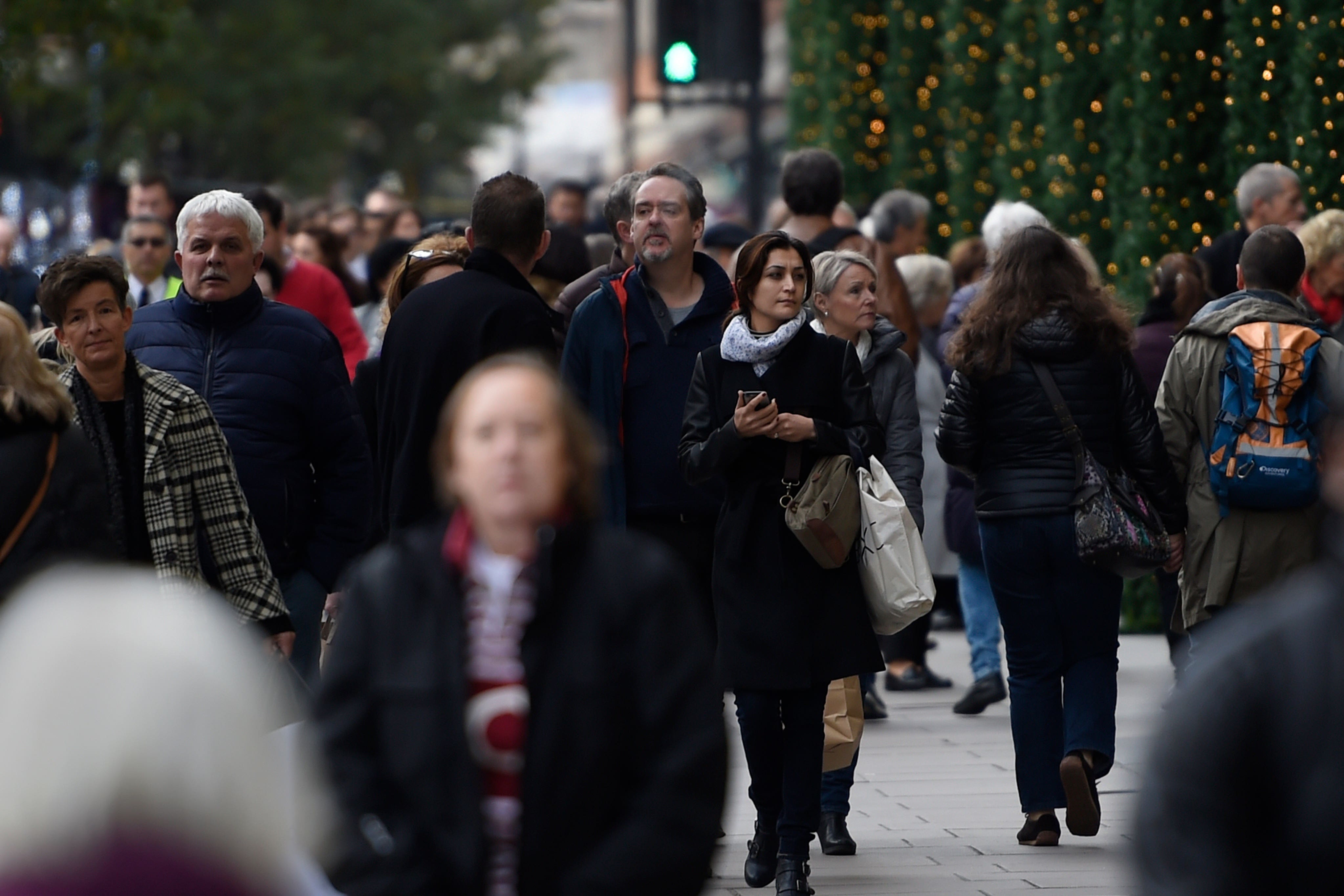New research sparks ‘creeping non-acceptance’ concerns about cash
Nearly half of people have recently been somewhere where cash has not been accepted or has been discouraged, according to a survey.

Your support helps us to tell the story
From reproductive rights to climate change to Big Tech, The Independent is on the ground when the story is developing. Whether it's investigating the financials of Elon Musk's pro-Trump PAC or producing our latest documentary, 'The A Word', which shines a light on the American women fighting for reproductive rights, we know how important it is to parse out the facts from the messaging.
At such a critical moment in US history, we need reporters on the ground. Your donation allows us to keep sending journalists to speak to both sides of the story.
The Independent is trusted by Americans across the entire political spectrum. And unlike many other quality news outlets, we choose not to lock Americans out of our reporting and analysis with paywalls. We believe quality journalism should be available to everyone, paid for by those who can afford it.
Your support makes all the difference.Concerns that people who are relying on cash to budget for essentials during the cost-of-living crisis are being blocked from using it have been raised by consumer campaigners, following new research.
Nearly half (45%) of people have recently been somewhere where cash has not been accepted or has been discouraged, according to the findings from ATM network Link.
Car parks, cafes, restaurants and public transport are among the places where cash acceptance has been particularly limited, Link’s findings indicate.
Consumer group Which? highlighted the need to avoid “sleepwalking” into a situation where cash users are excluded from certain services.
Research published by the consumer group earlier this year found more than half (54%) of people still regularly use cash, mostly alongside other payment methods.
Being unable to be pay in notes and coins is still frustrating for some
Of those who regularly use cash, just over half (52%) told Which? that cash helps them keep track of their spending.
Nearly half (49%) of people affected said that being unable or being discouraged to pay in cash was inconvenient, Link found.
London was found to be the top location where people had experienced a lack of cash acceptance, with 55% of people surveyed there saying they had encountered the issue.
The north east of England was the location where people were least likely to have found a lack of cash acceptance, with just over a third (36%) experiencing it.
In Wales, 43% of people had experienced a lack of cash acceptance and in Scotland and Northern Ireland the figure was 42%.
Link has been regularly carrying out research to understand people’s attitudes towards cash use.
It found one in eight (13%) people have found it more difficult to keep track of their finances due to using card payments in shops instead of cash and 16% are keeping cash at home in case of emergencies.
Graham Mott, director of strategy at Link, said: “If a shop, pub or restaurant no longer accepts cash or prefers customers to pay using card or mobile payments, we can now see that almost half of people find this problematic while the other half have no concerns.
“We know some people simply prefer using cash, but there are millions who can’t do digital payments, so being unable to be pay in notes and coins is still frustrating for some.”
In order to avoid sleepwalking into a situation where cash users are excluded from certain services, the Financial Conduct Authority should play a proactive role in monitoring cash acceptance and taking action where appropriate
More than 2,100 people were surveyed in early November and asked about their experiences with cash acceptance in the previous eight weeks.
Financial inclusion campaigner Lord Holmes, who is vice chairman of the All-Party Parliamentary Group on FinTech, said: “It’s understandable that people may be frustrated in locations like car parks, but the worry of creeping non-acceptance is what happens if councils or vital services like pharmacies or supermarkets stop accepting cash.
“At the moment, it’s still not feasible to expect everyone to pay for things on their phone or via contactless.”
The Government has said it will legislate to protect the future of cash.
Rocio Concha, Which? director of policy and advocacy, said: “It’s worrying to see so many people prevented or discouraged from using cash when our research has found millions still rely on it to pay for everyday essentials or to manage their finances amid a cost-of-living crisis.
“Long-awaited legislation to protect cash must include guarantees of a minimum level of free access so that millions of people affected by bank branches closing and cash machines charging fees are not forced to pay to withdraw their own money.
“In order to avoid sleepwalking into a situation where cash users are excluded from certain services, the Financial Conduct Authority should play a proactive role in monitoring cash acceptance and taking action where appropriate.”
Here are the percentages of people across the UK who said they had been somewhere since early September where cash has not been accepted or has been discouraged, according to ATM network Link:
– London, 55%
– East of England, 49%
– South East, 46%
– North West, 46%
– Yorkshire and the Humber, 45%
– South West, 44%
– Wales, 43%
– Northern Ireland, 42%
– Scotland, 42%
– East Midlands, 41%
– West Midlands, 39%
– North East, 36%